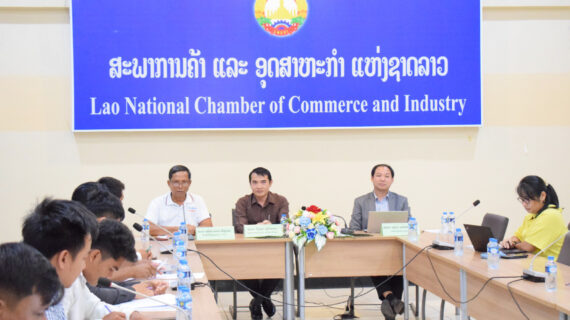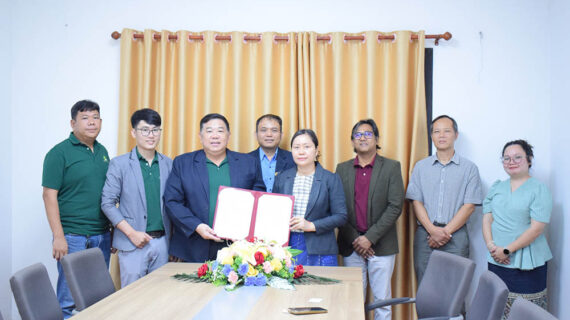Laos’ travel sector braces for impact as corona virus ripples across the globe
Upon kickstarting this year’s first Private Sector Working Group meeting earlier last month, the Lao Business Forum (LBF) Secretariat continues to organize subsequent consultation meetings in preparation for the 13th LBF. On March 4, a platform for discussing roadblocks faced by the private sector in doing business was provided to members of the tourism industry.
The meeting, chaired by Ms. Valy Vesaphong, Vice President of Lao National Chamber of Commerce and Industry, attracted 51 representatives of businesses across the spectrum of the travel sector such as restaurants, hotels, tourist attraction operators, travel agencies, transport association and airlines to openly discuss and prioritize issues to be raised to the public sector’s attention.

Impact of the coronavirus was repeatedly raised as one of the issues that is crippling their businesses. The spread of the coronavirus, which spooked travelers to rapidly cancelled reservations and dropped future travel plans, led many airlines to reduce and suspend many flight segments. Such necessary measures thus caused a rippling effect to other businesses within the travel industry. Understandably, countries closest to China are hit the hardest, especially those economies that are reliant on tourism like Laos (where 13.7% of its GDP in 2017 was attributed to tourism).
The private sector pleaded that measures, such as tax relief, in the wake of the outbreak are vitally needed to keep their business afloat while retaining as many of their employees as they could. Many countries, both developing and developed, have started rolling other these measures to tackle coronavirus disruption.
Other issues that the tourism sector businesses identified as impediments to their business operation at the meeting include those relating to inconsistent application of laws and regulations, high administrative costs, unfavorable banking regulations, and skilled workforce shortage to name a few.
Private Sector Working Group meetings kickstarted the public-private dialogue process under the LBF mechanism in which groups of businesses, generally divided by their respective industry sector, gather together to debate and select issues to be raised at subsequent stages of the LBF process.

This ensures greater legitimacy to issues raised by businesses through the power of collective voice, in contrast to those raised individually by one single firm, thus creates a sense of urgency for the public sector to address such issues.
Yet, this may well pose as a restriction where only issues raised at this initial stage of the LBF process will be considered. Problems that were not raised as prioritized issues would then have to be put on hold until the next LBF round.
The rectification of doing-business issues helps promote private sector development through improving overall business climate in Laos. Ultimately, it will assist the Government to achieve its social economic development targets, one of them being Laos’ graduation from Least Developed Country status.





